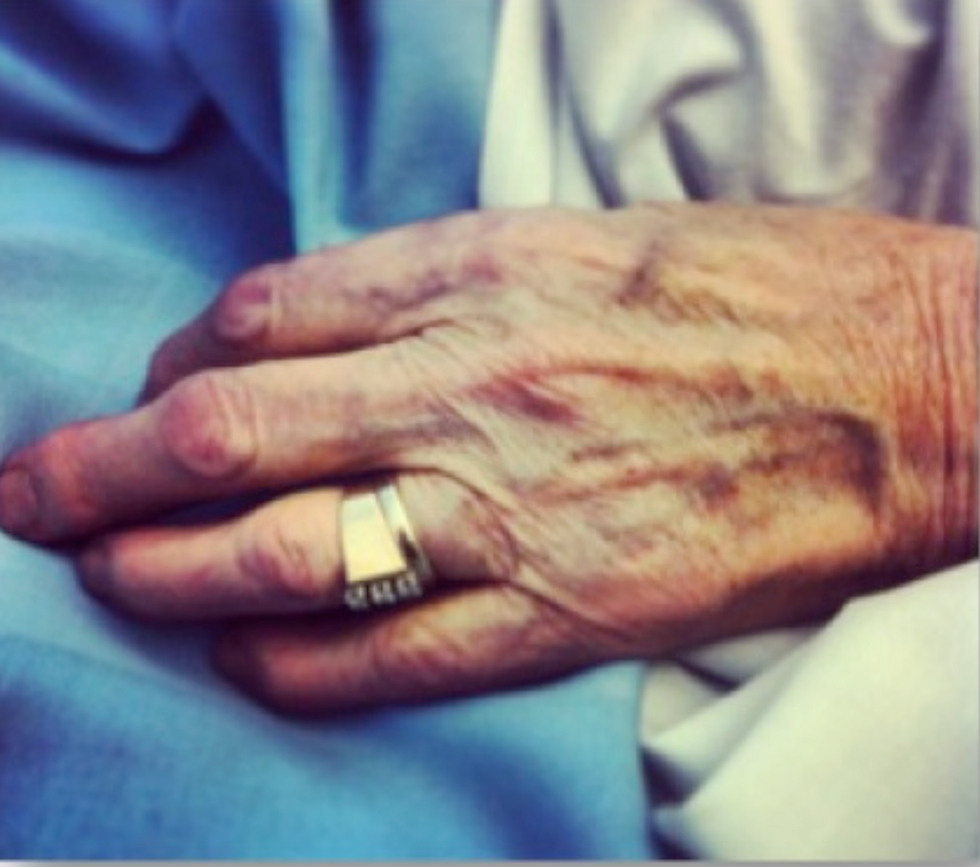Caregiving for Love
- Sue Robins

- Feb 21, 2024
- 3 min read

Taking care of another human being is the most honourable job on Earth.
Caregiving is also devalued, unrecognized and unsupported. There are many reasons for this, including that caregiving is traditionally female work. (When nurses make the same amount of money as lawyers, then we can talk).
This essay is about unpaid caregiving. I’ve been an unpaid caregiver for 30 years. I began when I first became a mom when my son Isaac was born in 1993. My caregiving role continued when my daughter Ella was arrived three years later. (Both pictured above). I became involved with an organization called Feminist Mothers at Home in the late 1990’s, which lobbied the government for recognition of stay-at-home moms.
My caregiving role exploded when my youngest son Aaron was born with Down syndrome 20 years ago.
Having a child with a disability means you are a life-long caregiver. In my country of Canada, it also means there is absolutely no government support for the work you do. I am not compensated. I do not get benefits. I do not pay into pension. Traditional workplaces are hostile towards me.
Daycare for children with disabilities under 12 is difficult to secure. There are absolutely no youth-care options for children with disabilities when kids are over 12 years of age.
In adulthood, unless you sign up for a day program at an agency (the quality of which varies wildly), it is up to you to piece together a full and rich life for your loved one. One mom described this to me as a hodgepodge. Now that my son is an adult, I am the Hodgepodge Manager.
Caregiver-friendly workplaces are rare, so I work for myself. I wrote about the lack of caregiver-friendly workplaces for the Huffington Post after I had to resign from my position in 2016 at a children’s hospital to care for my son.
Many caregivers in the disability community have re-invented themselves because of necessity – freelancing and working from home because they have no other choice. There is no income security, which is awfully ironic because we also need to save money for our loved ones, as the disability income supports in Canada are pathetic.
This might sound like a bunch of whining to you. It isn’t. This is my reality and the reality of thousands of other caregivers, who are caring for disabled, sick or elderly loved ones.
None of this crap is my son’s fault. The lack of support for caregivers is a purposeful decision to leave us behind made by politicians and policymakers.
Caregivers are told it is our responsibility to advocate for change. We are tired, and quite frankly, broke and just trying to keep afloat. I am wary of organizations that profess to speak on our behalf, as they aren’t necessarily representative of our real-life challenges. I cringe when I see millions of dollars allocated to research. We don’t need more research about caregiver burden. We already know what the problem is. Just ask us (yes laypeople know a thing or two about their lives. And have thoughtful recommendations about system-change even if we don’t have graduate degrees).
Here are some things that would make my life a hell of a lot easier:
Caregiver support – physical, emotional, mental and peer support.
Stronger oversight with disability agencies for quality, family engagement and client safety.
Removal of the ridiculous government and agency gatekeeping for funding, including cumbersome reporting requirements.
Easily accessible caregiver benefits that are not tied to employment. UBI (Universal Basic Income) would solve this.
An increase in disability payments for our loved ones and removal of claw backs if disabled folks make ‘too much’ money.
The ability for caregivers to contribute to benefits and pension.
Flexible workplaces for caregivers that include caregiver leave and work-from-home remote options.
The number of caregivers is growing. I don’t know how to make policymakers and politicians pay attention, but I do know many of us are teetering at the edge of a cliff.
I always think about the ole Serenity Prayer what is in my control and what is not. What is in my control: I will continue to write about caregiving and connect up with other families who are in the same (sinking) boat. I will keep building a community for my son, and by default, for me. I will latch onto any support offered. I’m grateful to have found these ACT workshops which have helped me find some peace in my heart.
The more caregivers band together, the stronger we will be. This is a kitchen table revolution, not a boardroom table one.
What is more important than the act of caring for each other? Please remember that we do caregiving for LOVE. More than anything, I wish the world understood that it is systems and society that are the burden. Not our loved ones. It has never ever been our loved ones.




Comments